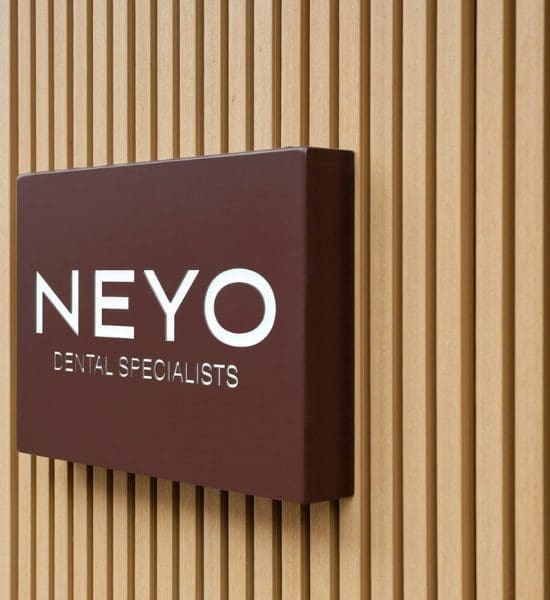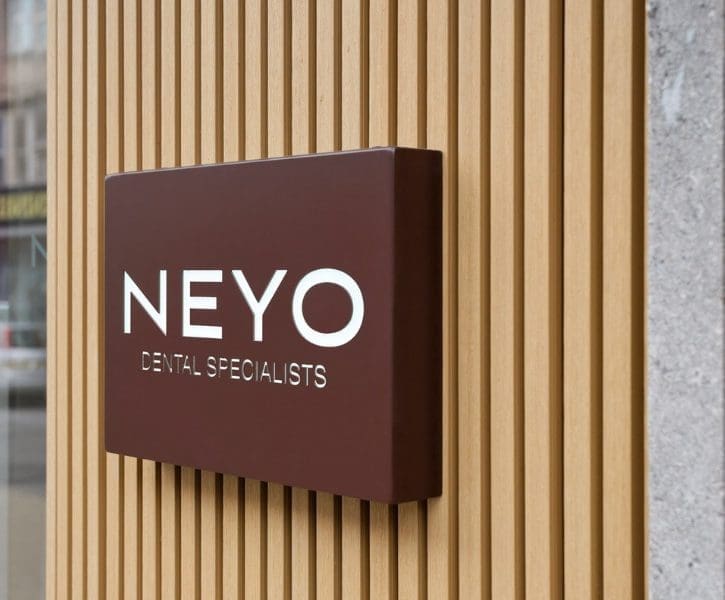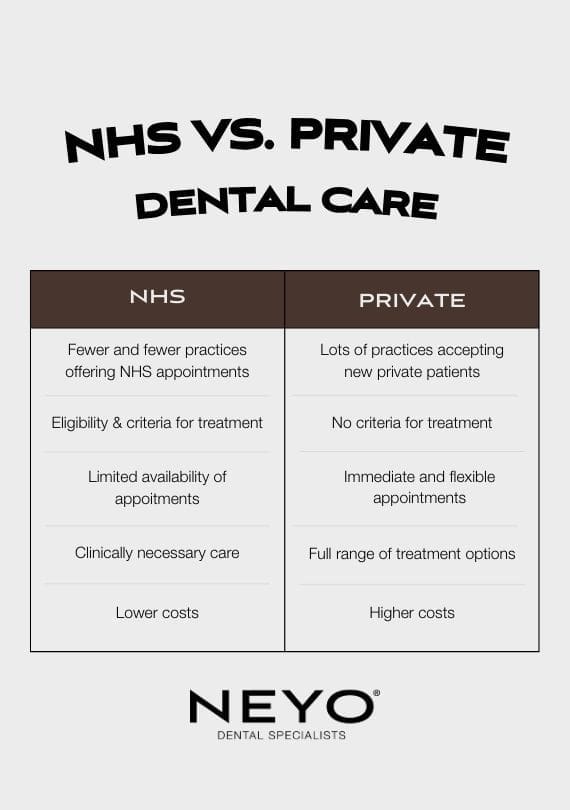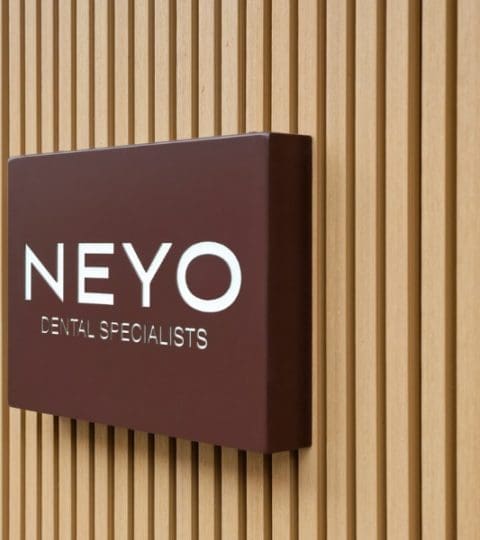Typically, private dentists can offer a wider range of treatment options, have more flexibility in offering treatments not covered by NHS funding, and can provide a wider array of choices to patients.
NHS dentists prioritise care based on clinical necessity, focusing on maintaining the health of your teeth, mouth, and gums. Unlike private dental care, the NHS does not cover cosmetic treatments.
NHS dental services cover routine check-ups and provide treatments for abscesses, wisdom tooth extractions, fillings, root canal therapy, and prosthetic services like dentures, crowns, and bridges.
Orthodontic treatments, such as braces, may be available under the NHS if specific criteria are met, typically requiring medical justification.
Private dental care mirrors the services offered by NHS dentists but does not have the priotitisation and criteria for treatment that you may find with an NHS dentist. Cosmetic and aesthetic procedures, aimed at enhancing the appearance of your teeth also tend to be available at private practices. These treatments encompass teeth whitening, composite bonding, porcelain veneers, and various orthodontic options, including invisible braces.







